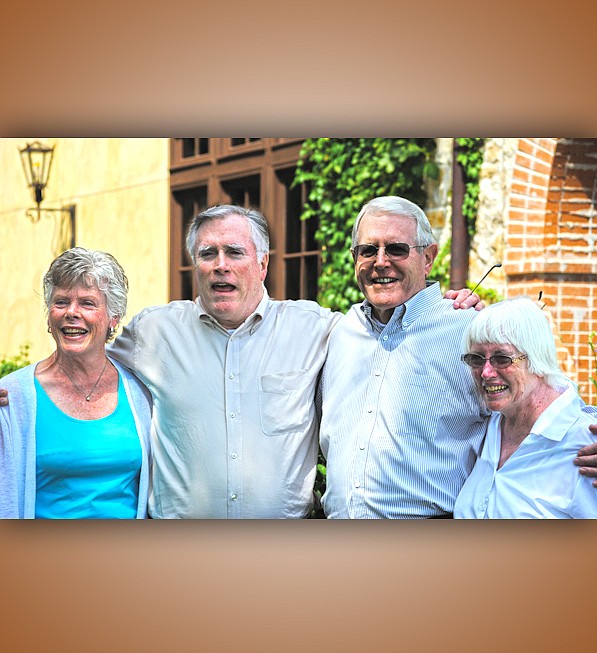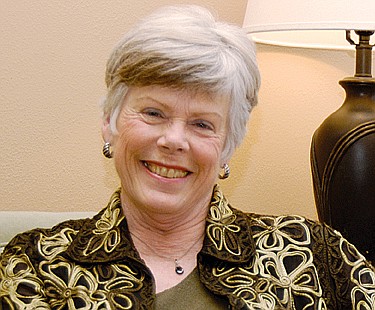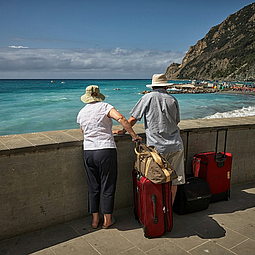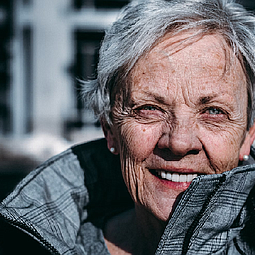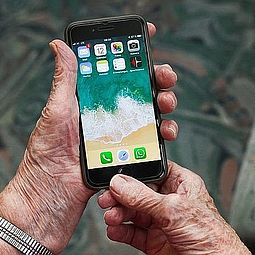The Need for Memory Care: A Personal Story
October 30, 2012 at 12:25 p.m.
At dinner one evening my older sister quietly said to her husband, “I'm going to need a lot of money”. Caught totally off guard, my brother-in-law said, “Oh really, what for”? My sister responded, “Because I ran into another car today”
There had been signs that my sister was experiencing some dementia and as is usually the case, there was a period of disbelief and denial on the part of her spouse and family. They turned to one another in an effort to verify what they were observing and rule out the possibility that it could be a figment of their imagination. The family, my brother-in-law and two daughters, resigned themselves to the fact that, indeed, they were witness to a transformation in my sister caused by a disease that consumes the very fiber of one's personality and mental ability. As time went on, the disbelief turned to a searching for answers and a definitive diagnosis, then fear as to just what the future would hold, and finally a gradual reluctant resignation and adjustment to a change in routine, the loss of a known life, and a yearning for the person that once was.
Dementia is not new to my family. On my father's side, three of the four members of his family experienced dementia, my father, his sister, and their mother, my grandmother. My grandmother was diagnosed with ‘senility’ and died in 1963 having lived with her daughter and husband for a number of years. My father died in 1980 at 74 exhibiting signs of dementia, but he succumbed to pancreatic cancer before experiencing full-blown dementia. His sister died in 2002 at 94 years of age after having lived with an Alzheimer’s diagnosis for fourteen years.
Dementia is an umbrella term for all the different kinds of dementia, the most widely known being Alzheimer's disease. As in my father's family, only one member was actually diagnosed with Alzheimer's. We could probably make a good case for the other two having the same diagnosis except one did not live long enough and the other lived before the condition was referred to as Alzheimer's disease.
I have three siblings and we have all lived with the sobering thought that we too might one day experience lives with dementia. We didn't need science to produce genetic data that identified genes showing us at risk. All we needed was the reality of my father's family to know that any of us offspring could be facing a dementia diagnosis in our future. Over the years as my siblings and I have gathered together, we have often conversed about the part dementia has played in our family history. I have cherished these conversations with the people I love most in this world, for by talking about it, it has made whatever comes in the form of dementia less scary. Too many families are skittish about talking about this subject. If I were to give any advice it would be the opposite: talk, talk, talk! The more we talk, the less the cancerous power of secrecy can further complicate what is undoubtedly already a scary, challenging situation.
Most of our families are touched by dementia in one way or another. For those of you familiar with the disease’s impact on families, the following will be all too familiar to you. My sister and brother-in-law were here this past summer for five weeks. I live alone and five weeks of company was a long time but it gave me a glimpse of the caregiver role. I have seen a lot of dementia and talked to a lot of caregivers but I have never been “the caregiver.” Over the five weeks, I had to keep several things in mind.
• This may be the last time they are able to travel from their home outside Heidelberg, Germany, to my sister's home country, the U.S.
• My brother-in-law needed a break from the nagging and continual, persistent and relentless caregiver role.
• My brother-in-law needed to talk and process the events of the past eight months with my sister's family. Actually, now that the dementia is more apparent, there have been subtle signs for the last two years.
• Two people have needs here. My sister needs oversight and care to keep her safe. My brother-in-law needs a listening ear to help him deal with the hollow place that only memories can fill.
So what are families to do about dementia? There are many schools of thought. I know that the challenge of caregiving often necessitates the assistance of a care facility, the cost of which can be unquestionably steep for many families. The Alzheimer's Association reports that over 5.4 million Americans are living with Alzheimer’s disease alone. That’s one in eight older Americans. Alzheimer’s is the sixth leading cause of death, and payments for care are estimated to be $200 billion in the United States.
If you are a caregiver for someone with dementia, or, as is highly likely, are close to at least one member of your family providing care for someone with dementia, you no doubt know the toll can be heavy. The assistance provided by a care facility can be welcome, but how to know what to look for, since none of the best care facilities are cheap?
The answer varies from family to family, of course, but thanks to new regulations within the last ten years, nursing homes or small adult family homes are no longer the only options available to families with loved ones dealing with dementia. Assisted living communities are now able to develop separate residential-care model (non-nursing-home) Memory Care communities. These follow specific Washington State regulations that stipulate such things as security, guidelines for care, activities, meals and laundry and private, accessible fenced courtyard areas. The better memory care communities are designed to foster socialization, provide intimate, familial comfort and coziness, engage residents in special activities that connect with individual histories and personalities and provide outlets for exercise, healthy and nutritious dining, and sensory stimulation.
Assisted Living Memory Care tends to be slightly less expensive than Nursing Homes and sometimes a bit more than adult family homes. The differences are plain to see upon a visit to all three types of care facilities. I invite you to visit any of our Chateau communities in Lynnwood, Bothell or Renton to investigate the differences for yourself. I acknowledge that not one glove fits all, but as with anything in senior care and housing, it can’t hurt to do your homework.
I know for my sister’s family and I, our homework is only now beginning, and we have much work to do. I only hope I can provide some comfort, solace and support as we make this journey together. ❖
Local, family owned and operated Chateau Retirement Communities has provided premium, customized and thoughtful memory care for the last five years or so, and this fall, with a newly renovated 31-bed memory care wing opening at Chateau Bothell Landing, the company has fulfilled its commitment to provide memory care at all three of its Puget Sound communities. Chateau has partnered with the University of Washington STAR program to provide ongoing, specialized dementia training to its caregivers, and is committed to providing the latest in gentle, individualized resident-centered care. Mention this article to receive a free meal for you and your family. Call and ask us about Memory Care today at 425.485.1155
If you would like information about Chateau Bothell Landing or to schedule a tour and free lunch, please call Community Relations Director Mary Benz or Rob Finley at 425.485.1155 or email Mary. Benz@chateaullc.com. Visit our website at www.chateau-bothell-landing.com
This article appeared in the November 2012 issue of Northwest Prime Time, the Puget Sound region’s monthly publication celebrating life after 50.
